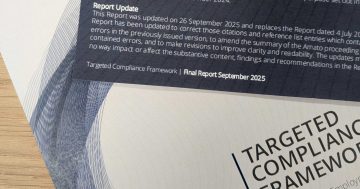 Taiwan’s Cabinet has signed off on new guidelines for the use of generative artificial intelligence (AI) within the public sector.
Taiwan’s Cabinet has signed off on new guidelines for the use of generative artificial intelligence (AI) within the public sector.
According to the guidelines, drafted by the National Science and Technology Council (NSTC) in July, public sector workers using generative AI must have any outputs evaluated by an assigned party for potential risks.
The guidelines also state that Government Agencies must not solely depend on the output of generative AI or its unverified content for administrative actions or official decision-making.
In addition, the guidelines require disclosure when generative AI is employed as a tool for official tasks.
Users are expected to adhere to regulations concerning information security, personal data protection and copyright, under the guidelines.
They state that users are not allowed to use AI to compose confidential documents, referring to files that pertain to State and official secrets as defined in the Executive Yuan’s Document Processing Manual.
They underscore that users should refrain from sharing classified official information, personal data, or making unauthorised disclosures to generative AI.
Queries to AI involving confidential work or personal information are also prohibited.
In a statement, the Cabinet said that the NSTC would be notifying all Government Agencies, asking them to adhere to the guidelines.
“These guidelines are introduced in the context of the Government’s plans to establish a comprehensive ethical and legal framework for AI,” the statement said.
On 1 August, Vice Premier Cheng Wen-tsan said that the framework was initially scheduled for release earlier, but had been postponed due to the rapid development and wide-ranging applications of AI.
Taipei, 1 September 2023









